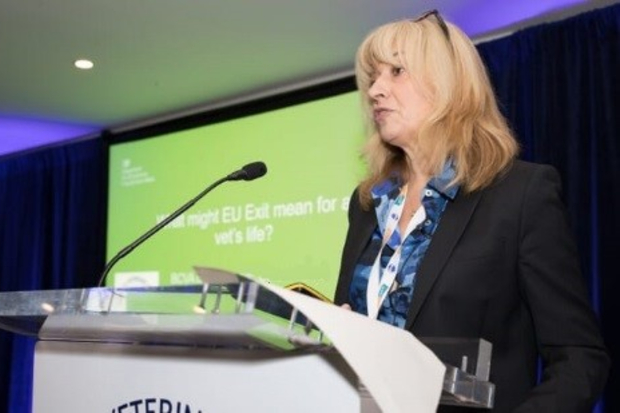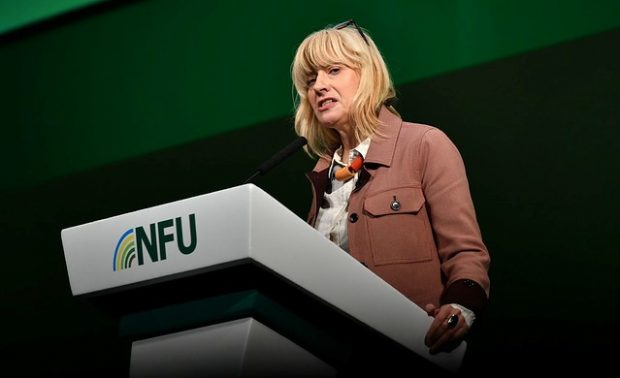
Christine speaking at the NFU Conference in February
Now that we are in Autumn, I thought it was time to reflect on the events and activities that I have been involved in so far this year. As well as intense planning in preparing for EU Exit, there are other exciting areas developing within animal health and welfare, such as ‘Future Farming’ and the Livestock Information Programme. But more of that later…
Influencing and Engaging with Farming and Agriculture Stakeholders
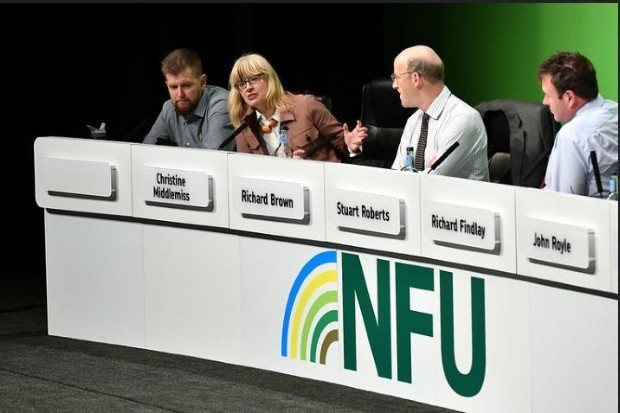
One of my first engagements of the year was to speak at the British Cattle Breeders Winter Conference. Part of my role as UK Chief Vet is to represent our animal health and welfare globally. Having international engagement and influence is crucial in terms of trade requirements and protocols, and when building relationships with other countries’ Chief Vets so they understand what our processes and procedures are. What goes on at farm, or even at cow level, can really matter to international trade. We work hard with those we export to, or hope to export to, so that they understand what has happened and what is being done. For example the Chinese are very focused on food safety due to their experiences, while the Japanese are very trusting of their officials in that respect. However, food quality, throughout the food chain, is very much important to them.
At the NFU Conference, we explored some of the challenges and opportunities for the UK red meat sector, examining domestic and global trends, where we saw trade opportunities and how to overcome market access issues. I highlighted how government aims to help drive forward productivity gains through a targeted support and policy framework that ensures a supply of safe affordable food and maintains a profitable livestock sector in the UK.
Educating the next generation of Vets and Farmers
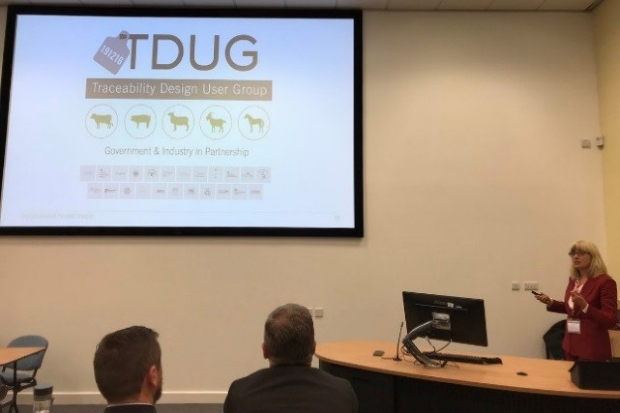
A visit to Harper Adams at the start of this year, gave me the opportunity to demonstrate to students (and staff) the importance of farm level animal health to global trade agreements, drawing on the current spread of African Swine Fever from wild boar in Russia across Eastern Europe and now on farms in Romania, together with its emergence in Asia, and explaining that should the UK detect this notifiable other countries could ban imports of British pork.
The UK has robust animal health surveillance system, which includes horizon scanning, border checks and information exchanges, to protect against disease transmission. To enhance controls within the UK, we are progressing from stakeholder engagement in the Traceability Design User Group (TDUG) to the Livestock Information Service (LIS), the initial operational capability which is expected by late 2019, to assist disease control, enhance farm to fork assurance and provide greater transparency to improve consumer confidence.
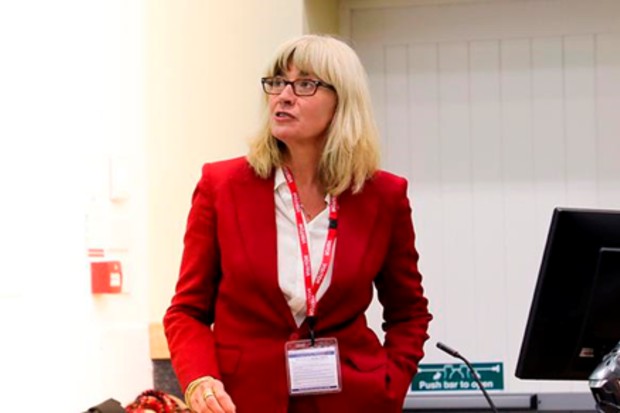
All of these measures, will aid the UK’s stance as a credible trade partner, enhance livestock production and help build the Great British food brand.
But the UK could do more…there is a need for greater consumer education on animal welfare; the UK’s antimicrobial resistance strategy is key to ‘One Health’ and we have to deliver on the contribution of animal health and welfare, through underpinning scientific evidence, to the Government’s 25 year Environment Plan.
Speaking to delegates at the VSC (Veterinary Schools Council) Away Day in July about the ‘Future of the UK Veterinary profession’, I explored the present and predicted level of UK veterinary capability and capacity and highlighted the work of the FVCCP (Future Veterinary Capability and Capacity Project). I highlighted the vet-led assurances and verification required by future global trade partners and new disease challenges presented by climate change and changing trade routes. I also noted the crucial ‘One Health’ role that vets can play across the entire food chain, from field to fork. The concept of vet-led teams as a way of working is key to ‘Future Farming’, and advances in Agri-tech require a varied skill-set; a new breed of technically aware vets are the future of the Vet Schools.
Maintaining links with Veterinary Professional Bodies
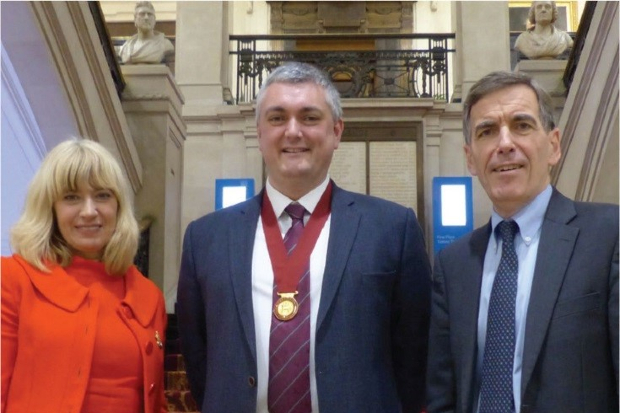
I have the pleasure of working closely with key veterinary stakeholders such as the RCVS and the BVA (British Veterinary Association), the cross-government Association of Government Vets (AGV) and the British Cattle Vet Association (BCVA). Recent engagements, such as the BVA dinner in February, have included discussions around the ongoing shortage of vets and the vital work they do for the UK economy. This work will continue post – Brexit with vets as part of the food assurance chain, maintaining the UK’s international reputation for health standards, food safety and disease control.
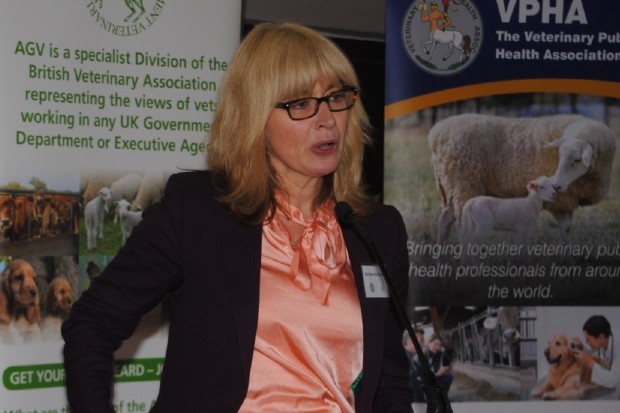
Work with stakeholders continues within and outside Government to tackle the issue of vet shortages, including the FVCCP (Future Veterinary Capability and Capacity Project), looking at veterinary resources, recruitment and retention and legislation. Successes are happening: vets have recently been returned to the SOL (Shortage Occupation List).
Our focus remains on domestic and international horizon scanning for disease threats, the need for vets to monitor imports and border controls and to help UK plc grow our export market, leading to opportunities for vets in the future. Vets are seen as trusted advisers and leaders. This will not change.
Influencing and Engaging with Food Industry Stakeholders:
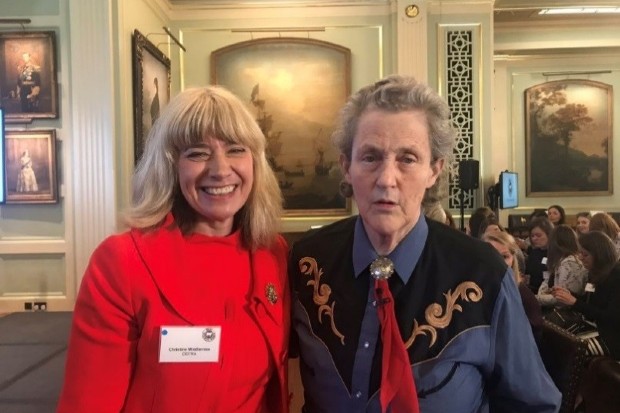
This year’s ‘Meat Business Women’ (MBW) conference in May on the ‘Future of the industry from the perspective of the UK CVO’ to an audience of women from a range of major UK producers, suppliers and retailers within the meat industry. We looked at the challenges of balancing the production of affordable nutritious food against ensuring minimum environmental impact and the current threats at our borders from exotic notifiable diseases such as African Swine Fever (ASF). I was lucky enough to spend time with fellow speakers, Temple Grandin, a personal hero of mine, who has influenced animal-handling systems around the world, and HRH Princess Anne, who demonstrated a keen interest in animal health and welfare during her closing speech.
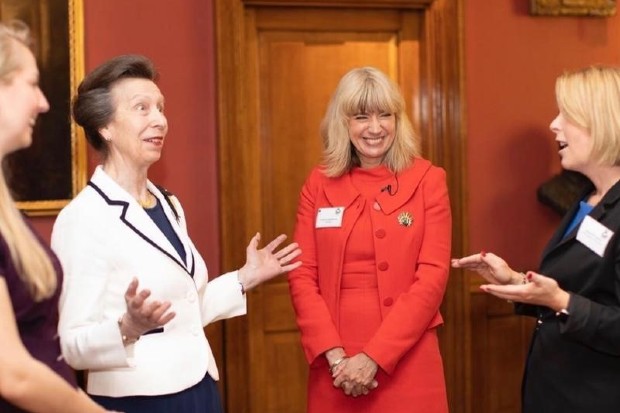
EU Exit and Sector Messaging to Stakeholders
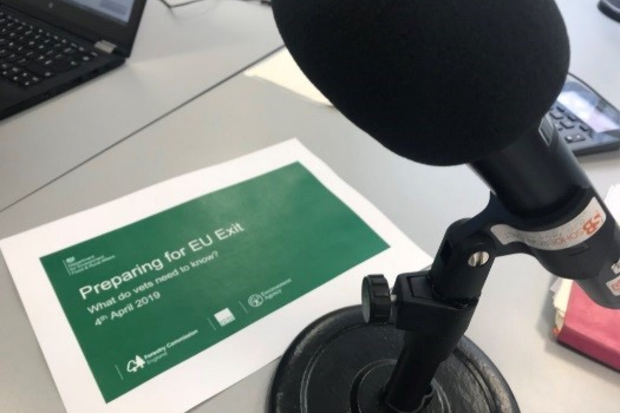
In-between the concentrated planning for EU Exit in the run up to 12th April 2019 and many visits to Brussels for technical discussions at CVO to CVO level at the EU Commission, I have advised my conference audiences on the likely impact of EU Exit on their particular sector and broadcast key messaging via webex and short videos covering the requirements for Pet Travel and Equine Movements during EU Exit as part of online guidance to UK industry stakeholders. I have highlighted challenges to our Official Veterinarians (OVs); there is a huge increase anticipated in the certification of food from animal origin after EU Exit. Trade support is essential; that includes exotic and notifiable disease detection and an updated outbreak assessment online that is evidence based. The veterinary workforce is 52 percent UK qualified and those vets from other countries that are registered with the RCVS at the time of EU Exit will be able to continue working in the UK. Exit from the EU provides the opportunity to devise more effective animal health and welfare systems, with vets leading the initiatives.
